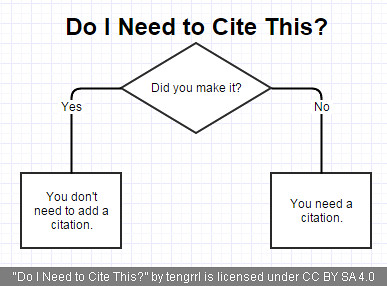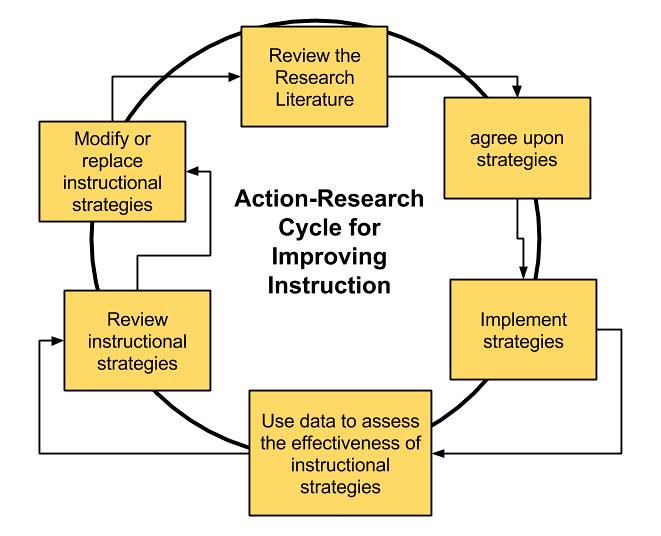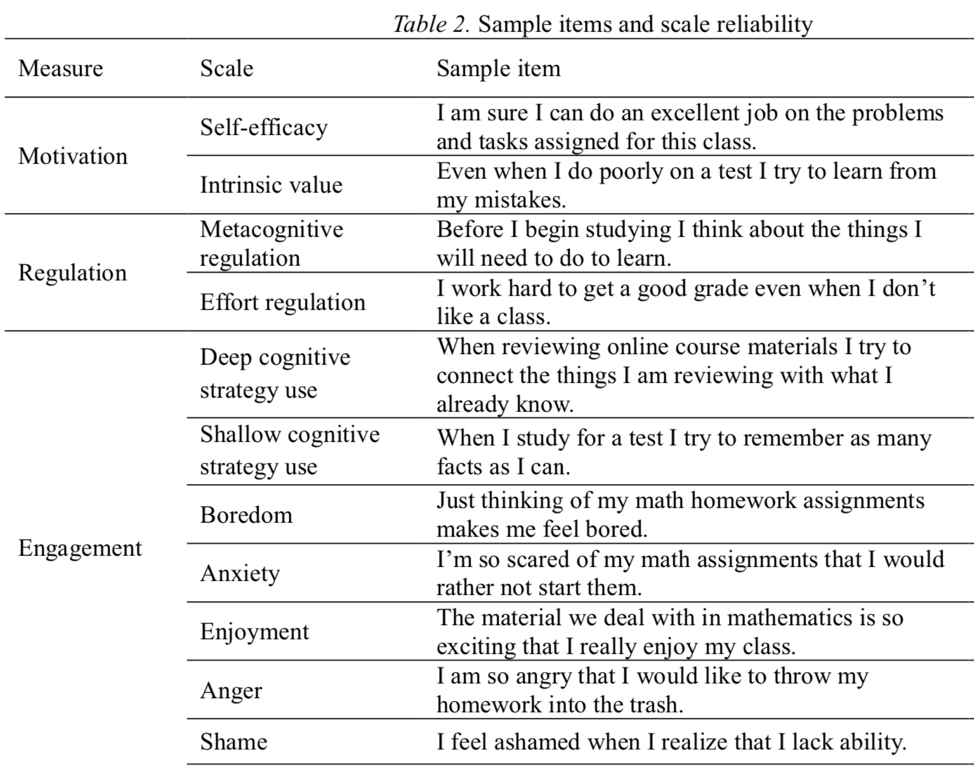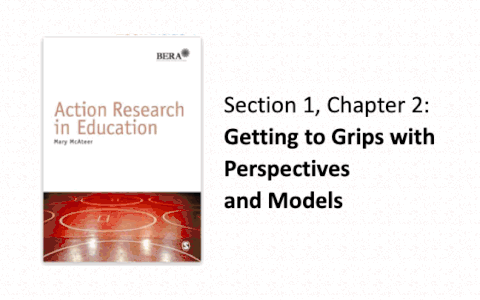
“Do I Need to Cite This?”by tengrrl is licensed under CC BY-SA 2.0
Researcher
The reading for discussion was by Mary McAteer, who earned her Doctor of Philosophy in 2000 after completing her Bachelor of Education in 1979 and her Masters of Science in Educational Management in 1993. Between earning her Bachelor’s degree and her doctoral degre, she held a range of classroom teaching and senior management roles in a number of schools in Northern Ireland. Following her doctorate, she started work at Edge Hill University, which was granted the power to award degrees in 2005. McAteer completed a Post-Graduate Certificate in Research Supervision at Edge Hill University in 2010. More recently, she worked as an author at SAGE Publications, who published her book, as well as the Director for MaST programmes for the United Kingdom’s Advisory Committee on Mathematics Education. McAteer is a respected educator, teaching master’s courses in education enquiry and professional learning as well as specialist primary mathematics practice. Her guest lecture and conference experiences extend to the African Institute for Mathematical Sciences Schools Enrichment Centre as well as the United States. She is active as an external examiner for master’s and doctorate work focusing on action research and other close-to-practice research while continuing to supervise PhD students. As a researcher, she has written 40 articles since 2000, and is a reputable source of knowledge for action research in education based on her experience.
Research
Mary McAteer’s book, Action Research in Education, was aimed at the beginner in educational research. “Chapter 2: Getting to Grips with Perspectives and Models” gives clear explanations, describing action research as a systematic and planned process of data collection, analysis of the collected data, and theory generation and testing. A teacher’s regular daily reflection is more focused on providing formative feedback to students and developing strategies to differentiate learning outcomes to students. Action research is more critically reflective, looking for alternative perspectives and considering classroom or pedagogy limitations as problems which require solutions. Action research suggests that reflection on practice should be:
- Descriptive, in that it is personal and retrospective.
- Perceptive, in that it has an emotional aspect.
- Receptive, in that it relates personal views to those of others.
- Interactive, in that it links learning to future action.
- Critical, in that it places the individual teacher within a broader ‘system’. (McAteer, 2013)
Action research projects are suitable for teachers looking to improving their practice. The project could be rooted in areas in which the teacher has control rather than looking for solutions to institutional problems, unless the institution is the instigator of the project. Good projects allow for testing of personal, professionally important hypotheses and exploring explanations that could be related to a more extensive theoretical base and are relevant to others in education. Action research is a mixed methods form of research.
The Action Research Project Cycle is similar to the design process cycle. The four stages are plan, act, observe and reflect. There could be multiple iterations of the cycle within a project. When starting a project, it is challenging to only collect data at the beginning without affecting the student outcomes. For teachers, it is difficult to remain unbiased if an activity is not producing the anticipated results. They need to stay observant, particularly for small changes. This example of the Action Research Cycle was available in the Creative Commons.

“Action Research Cycle for improving instruction”by w.robkoch is licensed under CC BY-SA 2.0
Researchers of Contrasting Article
The article not using action research was by ChanMin Kim, Seung Won Par, Joe Cozart and Heywon Lee. ChanMin Kim earned her Bachelor of Arts in 1998 in Korea, going on to earn two Masters of Education in Korea (2003) and in Boston (2004). Her doctorate was completed in Florida in 2007. Kim is a mathematics and technology researcher who has written 64 articles since 2004. Although Seung Won Park was not listed in Google Scholar, but had a listing on Research Gate. She has earned her doctorate and is currently in the Faculty of Education at the University of Hong Kong after studying Educational Psychology at Pennsylvania State University and Instructional Design at the University of Georgia. Park’s articles are in the technology field. Joe Cozart has a very limited online presence, but has contributed to 10 articles since 2011. Heywon Lee has no information in Google Scholar and only this article listed on Research Gate. Based on the expertise of Kim and Park, I expected this article to be legitimate.
Contrasting Article Research
In “From Motivation to Engagement: The Role of Effort Regulation of Virtual High School Students in Mathematics Courses”, Kim et al. chose to only study quantitative data. The final study had data from 100 online learners that filled out surveys at three times during their semester long online mathematics course. At the beginning of the semester, the middle of the semester and the end of the semester, students rated value statements on a 7-point Likert scale ranging from (1) “Not at all true of me” to (7) “Very true of me.” The study was investigating “How do high performers and low performers differ with regard to their changes in motivation, regulation, and engagement throughout the course?” (Kim et al., 2015) The value statements students responded to are displayed in the chart below from page 264 of the journal.

Implications of adding Action Research
As educators, I expect Kim et al. could collect the reflection data objectively as they were not the teachers of their subjects. In order for this study to use action research, the team would have needed to be involved in affecting the teaching resources or have the ability to change the support students were offered. They also would have needed to commit more time to the study or may have needed to have a larger team, possibly including the teachers in charge of the online students. The organization offering the online courses or its principal would likely need to be part of the team so that the changes could be implicated easily as nine courses were involved. The data collected could have been totally different if they were successful in planning and enacting strategies to motivate the students.
There are two ways this could have or still could be turned into an action research project. In the first possibility, the initial reflection by the students could have been used as the data on which to base the reflection. A decision would need to have been made whether to address all students with all possible motivators or interventions planned, or to just address the students experiencing difficulties in any of the areas. Some possibilities could be providing exercises to build confidence, providing interactive lessons to build confidence and positive attitude, interaction with a teacher in real-time through Skype or something similar, adding study ideas to the lessons, or linking students to help each other. The second possibility is to use the current complete study as the data to establish a plan to affect a different group of online mathematics students.
Changing the method of the study would have meant, if they had found successful ways to improve motivation and self-regulation, students may not have dropped the courses and they would have had more students complete all 3 surveys. From a students’ point of view, this would have been a great alternative.
The reader would have learned possibilities for improving their own online courses instead of just confirming the understandings and shortcomings of online education as traditionally presented. A reader could still use this data as the base for an action research project themselves.
Conclusion
Educational research lends it to action research. The reason behind educational research is almost always to increase student achievement. Any quantitative or qualitative study can be used as the first step in an action research project. After completing or reading this study, how could educators not want to take the next step of trying to test methods to improve the results of the students? The largest obstacle to action research is conforming to the regulations required by ethics boards as well as acquiring continuous consent from all involved parties. Institutions, parents and even students have to agree to allowing the information to be shared and studied in order for documented action research to take place, and this can be a complicated and constantly changing situation.

Bibliography
Alberta Teacher’s Association. (2000). Action Research Guide for Alberta Teachers. Retrieved July 10, 2019, from https://www.teachers.ab.ca/sitecollectiondocuments/ata/publications/professional-development/actionresearch.pdf
Edge Hill University. (n.d.). Mary McAteer. Retrieved July 14, 2019, from https://www.edgehill.ac.uk/education/about/staff/mary-mcateer/
Google Scholar. (2019). ChanMin Kim. Retrieved July 14, 2019, from https://scholar.google.co.uk/citations?hl=en&user=D6EEp0UAAAAJ
Google Scholar. (2019). Joe Cozart. Retrieved July 14, 2019, from https://scholar.google.co.uk/citations?hl=en&user=CFjNHv0AAAAJ
Google Scholar. (2019). Mary McAteer. Retrieved July 14, 2019, from https://scholar.google.co.uk/citations?user=g_72zXcAAAAJ&hl=en
Kim, C., Park, S. W., Cozart, J., & Lee, H. (2015). From Motivation to Engagement: The Role of Effort Regulation of Virtual High School Students in Mathematics Courses. Journal of Educational Technology & Society; Palmerston North, 18(4), 261–272.
Koch, Rob. “Action Research Cycle for Improving Instruction.” Flickr, Yahoo!, 3 Aug. 2015, www.flickr.com/photos/133494837@N03/20084505839.
McAteer, M. (2013). Action Research in Education. https://doi.org/10.4135/9781473913967
McAteer, Mary. (n.d.). Posts [LinkedIn Page]. Retrieved July 14, 2019, from https://www.linkedin.com/in/mary-mcateer-0a7615b/
Research Gate. (2019). Seung Won Park. Retrieved July 14, 2019, from https://www.researchgate.net/profile/Seung_Won_Park
Tengrrl. “Do I Need to Cite This?” Flickr, Yahoo!, 9 Nov. 2015, www.flickr.com/photos/83528664@N00/22467851468.
Recent Comments